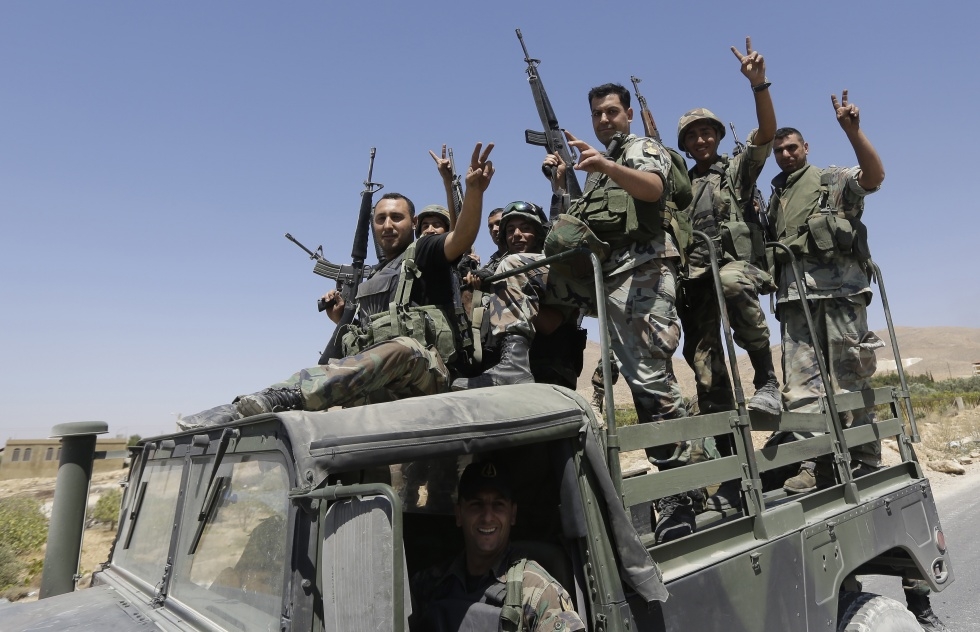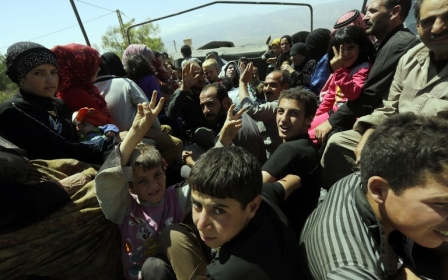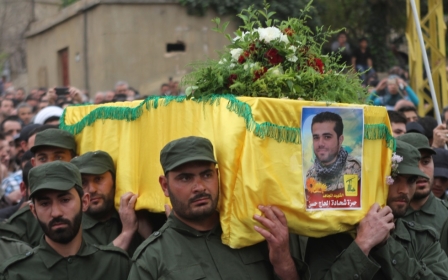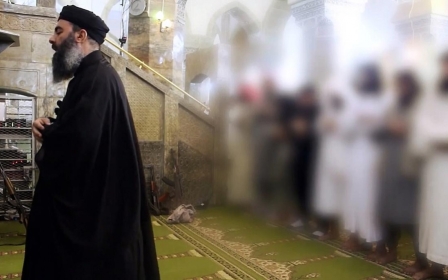UN warns Lebanon against getting sucked into Syrian war

The UN Security Council has backed Lebanon's military action against extremist groups but urged it to stay out of the conflict in neighbouring Syria as Beirut vowed no leniency for "terrorist killers".
Prime Minister Tammam Salam pledged there would be "no leniency towards the terrorist killers and no appeasement for those who violate Lebanon's territory and harm its people".
He also urged France to speed up delivery of weapons for the Lebanese army being purchased under a $3 billion deal financed by Saudi Arabia.
The violence coincides with reports of violence in the city of Tripoli.
A Lebanese girl was killed and eight others, including two civilians, were wounded Tuesday when unknown militants opened fire on a bus carrying Lebanese soldiers in Bab al-Tabbaneh, a district in the northern city of Tripoli, according to a security source.
The source, who requested anonymity, said the shooting was followed by an exchange of fire between the two sides.
The predominantly Sunni district was the scene of sporadic clashes throughout Monday night.
Two people were wounded Monday when the army tried to disperse a group of people who gathered to protest ongoing clashes between the army and a group of Syrian militants in Arsal, a town on the border with Syria.
The violence in the eastern Lebanese region began on Saturday afternoon, after soldiers detained a Syrian man, Imad Ahmed Jumaa, who the army said confessed to belonging to al-Qaeda's Syria affiliate, Al-Nusra Front.
Militant groups angered by the arrest opened fire on army checkpoints and stormed a police station, killing two civilians and capturing several police.
Twenty-two Lebanese soldiers are missing, possibly taken hostage, the army announced, and a military source said 16 others had been killed since the clashes with as yet unconfirmed Islamist fighters erupted on Saturday near the Syrian border.
The United Nations Security Council on Monday called on Lebanese politicians to "preserve national unity" and "refrain from any involvement in the Syrian crisis".
The 15-member Council "expressed support for the Lebanese Armed Forces and the Internal Security Forces in their fight against terrorism".
Analysts said the violence could be contained in the short-term, but warned an aggressive military response could stoke tensions and worsen the clashes, which have also killed three civilians.
On Monday, the army deployed reinforcements and fired mortar rounds at militant positions in the mountains around the eastern border town of Arsal, saying it was advancing.
Residents fled en masse after fierce fighting overnight.
"We didn't sleep all night because of the fighting," said Ahmed Hujairi, 55, who left with his family.
"The armed men are not letting anyone else leave. They fired over our heads to stop us," he added.
The gunmen were from different countries, dressed in black and were "very well-organised".
A third civilian was shot dead by a sniper on Sunday.
The clashes are the latest evidence of how Syria's conflict, which began with protests against President Bashar al-Assad in March 2011, has afflicted Lebanon.
Despite officially distancing itself from the war, Lebanon's existing sectarian and political tensions have been worsened by the conflict next door.
The conflict has also tested Lebanon’s limited resources and the patience of its four million citizens as the country hosts more than one million Syrian refugees.
And Hezbollah, the powerful Lebanese Shiite movement, has openly intervened in the Syrian conflict, dispatching fighters to bolster regime troops against the Sunni-dominated uprising.
Majority-Sunni Arsal is broadly sympathetic to the uprising against Assad's regime, and has regularly been bombed by Syrian regime forces who say that they are targeting opposition fighters holed up in the area.
Middle East Eye propose une couverture et une analyse indépendantes et incomparables du Moyen-Orient, de l’Afrique du Nord et d’autres régions du monde. Pour en savoir plus sur la reprise de ce contenu et les frais qui s’appliquent, veuillez remplir ce formulaire [en anglais]. Pour en savoir plus sur MEE, cliquez ici [en anglais].




